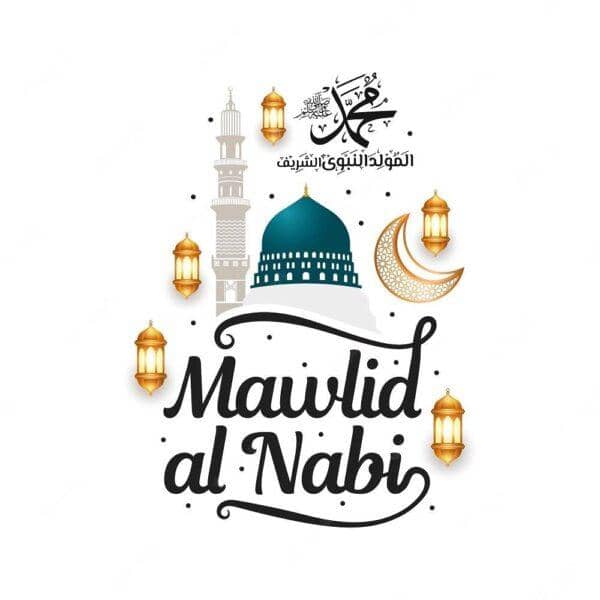Fatima bint(daughter of) Hazam al-Kilabiyya and Leila (Shamamah) notably known as Hazrat Umm ul-Banin (mother of several sons) was a descendant of a valiant family.
The family of Hazrat Umm ul-Banin was pre-eminent among the noblemen of their time in terms of honor, valor, nobility, and hospitality. Umm ul-Banin inherited these lofty characteristics from her ancestors, integrated them with what she learned from the family of revelation, and passed them on to her children.
After the Master of the Pious, Imam Ali(peace be on him), had lost Hazrat Fatima Zahra (peace be on her); that is, after the wretched of the time had martyred her, his young children needed a mother who would be affectionate towards them while simultaneously being his comforting wife.
From the very beginning of the marriage, Imam Ali found Fatima Kilabiyyah, who was still young, a woman of complete wisdom, deep, firm faith, and lofty manners of high characteristics. He esteemed her and wholeheartedly strove to revere her.
Hazrat Umm ul-Banin was also a truly dutiful wife. In addition to training righteous children, she showed maximum loyalty to the Imam. After the martyrdom of Imam Ali(peace be on him), although she maintained her youth and extreme beauty, she did not remarry in respect to her great husband.
Umm ul-Banin tried to be a loving mother to Hazrat Fatima’s children, she preferred the children of the Prophet’s daughter, who were the very epitome of perfection, to her own and showed them more care and affection.
Knowing their greatness, Umm ul-Banin sought to be at their service; she did not deny them anything. The very day she moved in with Imam Ali’s household, both Imam Hasan and Imam Husayn (peace be on them) were sick and confined to bed. But as soon as the bride of Abu Talib’s Household entered the house, she soothed and nurtured them like a kind mother.
It is written that when Umm ul-Banin married Imam Ali (peace be on him), she suggested that he call her ‘Umm ul-Banin,’ her nickname, instead of Fatimah – her name at birth – so that Imam Hasan and Imam Husayn (peace be on them) might not recall their mother by hearing the name ‘Fatima’. This prevented their bitter past from being stirred up and feeling the pain of being motherless.
Umm ul-Banin gave birth to four sons: Abbas, Abdullah, Uthman, and Ja’far. The prominent one was Hazrat Abbas, who was born on the 4th of Shaaban, 26 A.H. in Medina.
When Imam Ali (peace be on him) was martyred, Umm ul-Banin’s oldest son – Abbas ibn Ali – was about 14 years old, with his other brothers younger than him. After the martyrdom of their holy father, their mother’s sacrifices and Imam Hasan and Imam Husayn’s guidance showed them the right way.
This self-sacrificing lady wholeheartedly devoted her youth and energy to training and raising the offspring of Imam Ali (peace be on him). As a loving and concerned mother, she was at their service. All Umm ul-Banin’s children were trained most appropriately. Finally, following the rightful Imam and with complete willingness, they sacrificed their lives for the exaltation of the truth.
Her well-known words on hearing the news of martyrdom of all her four sons revealed her patience and tolerance and adorned the history of Karbala. While Bashir told the news of martyrdom of 34-year-old Abbas, 24-year-old Abdullah, 21-year-old Uthman, and 19-year-old Ja’far to the mother, she showed patience and only asked about Imam Husayn(peace be on him). She said, “Tell me about Husayn” and when she received the news of Imam Husayn’s martyrdom, she said, “All of the arteries of my heart are torn. May all of my children and whatever that exist under this azure heaven be sacrificed for the sake of Imam Husayn.”
Eventually, the godly life of Umm ul-Banin, which was replete with affection and struggle, came to an end about ten years after the event of Karbala. During her blessed life, she conveyed the message of the martyrs and perpetuated the path of Imamate; in other words, she completed her mission.
After the heartrending event of Karbala, she accomplished her political and social mission, namely keeping the eternal heroic event of Ashura alive in the best way possible. Umm ul-Banin passed away in 69 A.H. and was buried in Baqi‘ cemetery next to the Prophet’s aunts Safiyyah and ‘ Atikah, the four Shi‘a Infallible Imams, and other luminaries of Islam.
In his praise of Umm ul-Banin, Sheikh Ahmad Dajili, a well- known Arab poet wrote:
Oh Umm al-Banin! What sublime characteristics you enjoy! Due to the sorrow that came upon you [because of] your faith, you will be remembered forever.
Abdulkarim Paknia,Translator: Mahboobeh Morshedian, Exemplary Women: Umm ul-Banin.











